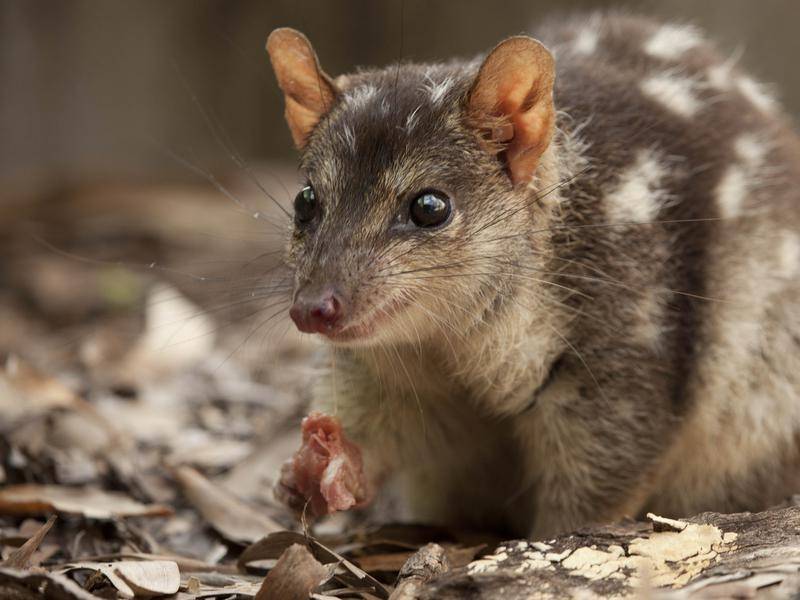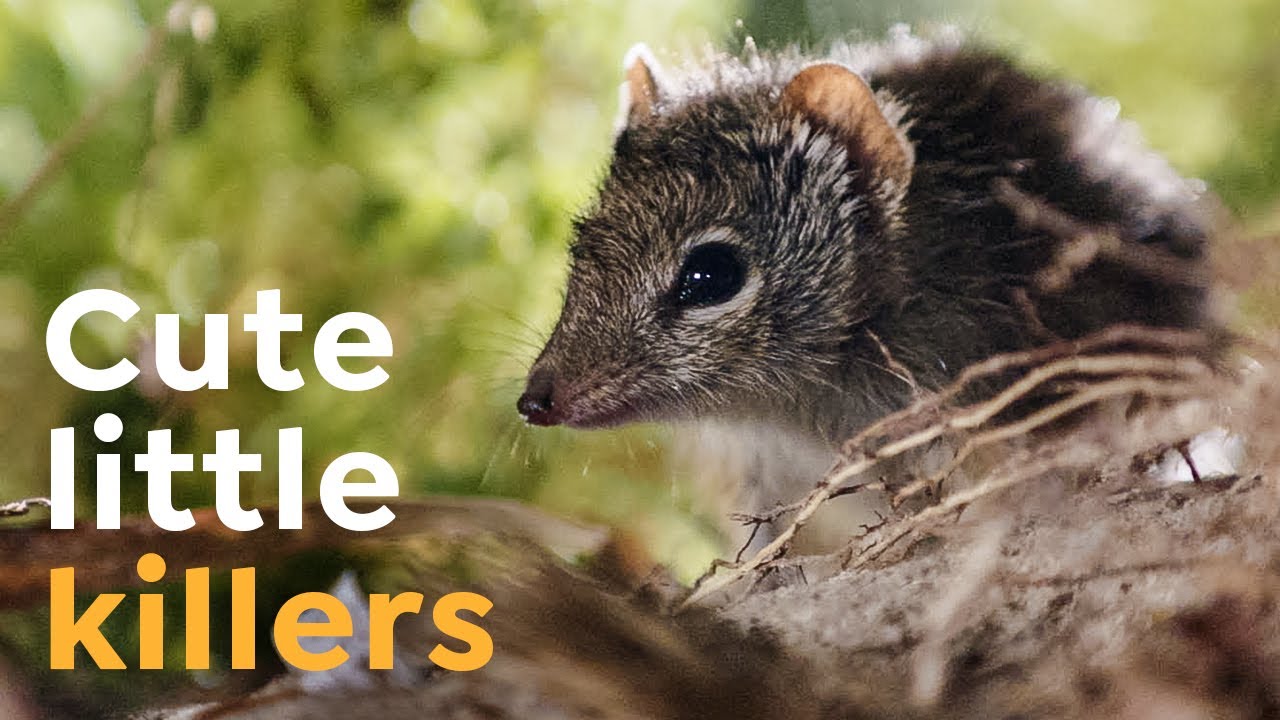Male Northern Quolls Are Skipping Sleep In Order To Have More Sex
Sex or rest? If you ask a tree-climbing and den-dwelling marsupial quoll, they will definitely choose sex rather than take a rest. In fact, a recent study found that the male northern quolls are skipping sleep in order to have more sex.
Author:Raven NoirReviewer:Morgan MaverickFeb 02, 202393 Shares1.3K Views

Sexor rest? If you ask a tree-climbing and den-dwelling marsupial quoll, they will definitely choose sex rather than take a rest. In fact, a recent study found that the male northern quolls are skipping sleep in order to have more sex.
Quolls are marsupial carnivores that are indigenous to Australia and New Guinea. They are predominantly nocturnal and spend most of the day in their dens.
Four of the six quoll species are located in Australia, while the other two are found in New Guinea. In Queensland's Pliocene and Pleistocene strata, fossils of two additional species have been discovered. Christofer Clemente, a senior lecturer at the University of the Sunshine Coast, stated that male quolls regularly avoid sleep in order to travel great distances in quest of a mate.
The study was led by his school and the University of Queensland and was made public on Wednesday. He stated:
“„They cover large distances to mate as often as possible and it seems that their drive is so strong that they forgo sleeping to spend more time searching for females.
Sleep deprivation may be to blame for the high mortality rate among male carnivorous marsupials, who are known to mate themselves to death in just one season, according to researchers. On the other hand, the female northern quolls have a lifespan of up to four years and can breed at any time.
The Research Process
On Groote Eylandt, an island off the coast of Australia's Northern Territory, researchers attached backpacks with trackers to monitor wild male and female northern quolls for 42 days. According to the study, some of the quolls they observed walked more than 10 kilometers (6.2 miles) in one night, which translates to approximately 40 kilometers in human distance based on average stride length.
Also, it was found that males of the species attracted more parasites. The most plausible explanation is that they dedicate less time to grooming in order to maximize each breeding season.
Researchers concluded that males are less alert than females when seeking food or avoiding predators. Joshua Gaschk, the study's lead author, observed:
“„Sleep deprivation, and associated symptoms for a prolonged duration would make recuperation impossible and could explain the causes of death recorded in the males after breeding season. They become easy prey, are unable to avoid vehicle collisions, or simply die from exhaustion.
Meet The Cute Little Killers

Carnivorous Marsupials | No Right Being This Cute
Fun Facts About Quolls
21-Day Gestation Period
Remarkably, a quoll's gestation period lasts only a few weeks. It takes the female quoll only 21 days after mating to give birth to her litter of up to 18 babies. When this happens, the female will start constructing a nest out of soft materials like grasses and leaves.
This is to give her offspring the best start in life. After birth, the babies will stay with their mother for up to eight weeks of nursing before they are ready to leave the nest.
Nocturnal Animals
Quolls are fascinating animals because of their dual nature as nocturnal and diurnal sunbathers. Species-specific sleeping environments range from burrows and hollow logs to caves. Quolls of all sizes like to burrow underground for the night, but the larger species are more likely to sleep in hollow logs or caves.
Small But Terrible Animals
Quolls are ferocious predators who seek and eat a wide range of mammals, including possums, birds, frogs, insects, and lizards. They also eat plant seeds and fruits and will scavenge carcasses if they come across them. Quolls are formidable predators, capable of taking down animals much larger than themselves because of their keen claws and powerful jaws.
Final Words
The new research study found out that the male northern quolls are skipping sleep in order to have more sex. However, Mr. Gaschk, one of the authors of the study, said that the preliminary findings indicate the need for additional research into the effects of sleep deprivation on quolls and other marsupial mammals found in Australia and Papua New Guinea. He stated:
“„If male quolls forgo sleep to the detriment of their survival, northern quolls [will become] an excellent model species for the effects of sleep deprivation on body function.
As mentioned, the number of male quolls is continuously decreasing because of their tendency to have more sex than sleep. On the other hand, the Australian Wildlife Conservancy mentioned that there are approximately 100,000 northern quolls left.
However, the population is "in fast decline." Loss of habitat owing to development and assaults by feral cats poses a severe hazard, and they are also highly susceptible to cane toad poisoning.

Raven Noir
Author
Raven Noir is a captivating and enigmatic news reporter who unravels mysteries with a relentless pursuit of truth. Possessing an insatiable curiosity and an astute mind, Raven delves into the depths of complex stories, unearthing secrets that lie beneath the surface. With a masterful grasp of deduction and observation, Raven stands as a beacon of fearless investigation.
In the realm of journalism, Raven is known for his enigmatic presence, drawing people in with an aura of intrigue. Driven by an unwavering passion for unveiling the truth, Raven Noir continues to shed light on the darkest corners of society. Through captivating storytelling and unwavering determination, he challenges conventions and uncovers enigmatic secrets that lie just beyond the surface.

Morgan Maverick
Reviewer
Morgan Maverick is an unorthodox news reporter driven by an insatiable hunger for the truth. Fearless and unconventional, he uncovers hidden narratives that lie beneath the surface, transforming each news piece into a masterpiece of gritty authenticity. With a dedication that goes beyond the boundaries of conventional journalism, Morgan fearlessly explores the fringes of society, giving voice to the marginalized and shedding light on the darkest corners.
His raw and unfiltered reporting style challenges established norms, capturing the essence of humanity in its rawest form. Morgan Maverick stands as a beacon of truth, fearlessly pushing boundaries and inspiring others to question, dig deeper, and recognize the transformative power of journalism.
Latest Articles
Popular Articles